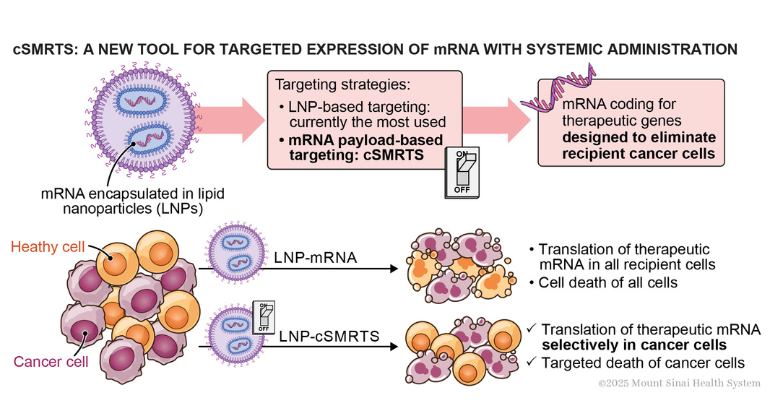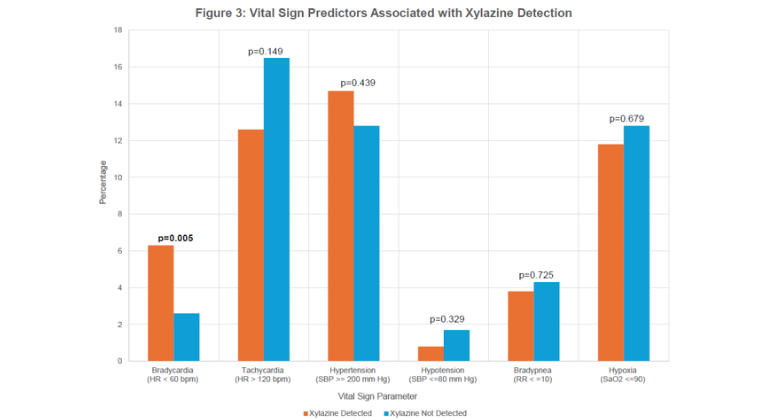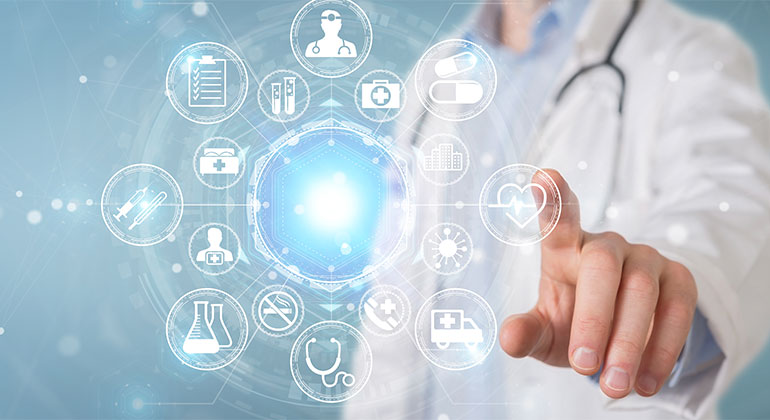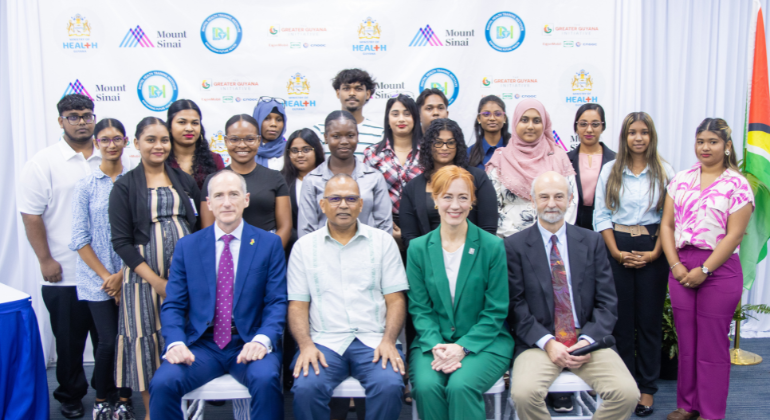Study Finds Supervised Self-Injection With Empty Syringes Improved Comfort in Food-Allergic Adolescents Administering Epinephrine
Researchers from the Icahn School of Medicine at Mount Sinai have found that supervised self-injection with empty syringes makes many food-allergic adolescents and their parents more comfortable with using the life-saving devices. The results were published on March 7 in The Journal of Allergy and Clinical Immunology: In Practice.
Eighty-three percent of the teenagers in the first-of-its-kind, randomized controlled study and 88 percent of parents, described the intervention as beneficial. Seventy percent of the youths said the intervention helped improve their ability to self-inject. The intervention may translate into significant clinical benefits.
Nearly 6 million children have food allergies in the United States. While deaths from anaphylaxis, a severe allergic reaction that causes shortness of breath, vomiting, and lightheadedness are uncommon, they occur most often in adolescents and young adults, particularly in reaction to peanuts and tree nuts. Epinephrine injections work to counteract the symptoms of anaphylaxis by opening airways and narrowing blood vessels. People with food allergies are advised to carry epinephrine auto-injectors with them at all times.
The authors’ previous studies found that adolescents are at risk for not carrying their self-injector, often because of anxiety about self-injection. Investigators used the frameworks of cognitive behavioral and exposure therapy and found that exposure to the stressor in a controlled setting alleviated patients’ stress.
“Many adolescent patients with food allergies experience needle phobia or anxiety about self-administering epinephrine,” said the study’s lead author, Eyal Shemesh, MD, Associate Professor of Pediatrics at the Icahn School of Medicine at Mount Sinai. “Although it’s a simple idea for teenagers to practice giving themselves an injection to make themselves feel comfortable, this could lead to them being confident enough to take a life-saving action using epinephrine down the road.” The study’s senior author is Scott Sicherer, MD, Professor of Pediatrics, Allergy and Immunology at the Icahn School of Medicine at Mount Sinai.
The study included 60 participants aged 13-17.5 years old who had previously been diagnosed with a food allergy, and who had been prescribed an auto-injector but had never used it. They were accompanied by a parent or guardian to their appointments, and participants completed self-report questionnaires about their or their child’s comfort with self-injection. Afterwards half of the participants injected themselves once with an empty syringe, supervised by a doctor. The other half functioned as the control group and received education about self-injection. The intervention group and control group participants answered the same set of questions after the injection and education, respectively. One month after the clinic visit, participants were mailed an identical follow-up questionnaire.
The study was funded as a part of the EMPOWER (Enhancing, Managing, and Promoting Well-being and Resiliency) program within The Elliot and Roslyn Jaffe Food Allergy Institute at the Icahn School of Medicine at Mount Sinai, and by the Jaffe Family Foundation, Vanech Family Foundation, and The Pine/Segal families.
About the Mount Sinai Health System
Mount Sinai Health System is one of the largest academic medical systems in the New York metro area, with 48,000 employees working across seven hospitals, more than 400 outpatient practices, more than 600 research and clinical labs, a school of nursing, and a leading school of medicine and graduate education. Mount Sinai advances health for all people, everywhere, by taking on the most complex health care challenges of our time—discovering and applying new scientific learning and knowledge; developing safer, more effective treatments; educating the next generation of medical leaders and innovators; and supporting local communities by delivering high-quality care to all who need it.
Through the integration of its hospitals, labs, and schools, Mount Sinai offers comprehensive health care solutions from birth through geriatrics, leveraging innovative approaches such as artificial intelligence and informatics while keeping patients’ medical and emotional needs at the center of all treatment. The Health System includes approximately 9,000 primary and specialty care physicians and 10 free-standing joint-venture centers throughout the five boroughs of New York City, Westchester, Long Island, and Florida. Hospitals within the System are consistently ranked by Newsweek’s® “The World’s Best Smart Hospitals, Best in State Hospitals, World Best Hospitals and Best Specialty Hospitals” and by U.S. News & World Report's® “Best Hospitals” and “Best Children’s Hospitals.” The Mount Sinai Hospital is on the U.S. News & World Report® “Best Hospitals” Honor Roll for 2025-2026.
For more information, visit https://www.mountsinai.org or find Mount Sinai on Facebook, Instagram, LinkedIn, X, and YouTube.

AI Could Help Predict Nutrition Risks in ICU Patients, Study Finds
Dec 22, 2025 View All Press Releases
Scientists Develop a Smarter mRNA Therapy That Knows Which Cells to Target
Dec 15, 2025 View All Press Releases
New AI Tool Identifies Not Just Genetic Mutations, But the Diseases They May Cause
Dec 15, 2025 View All Press Releases




